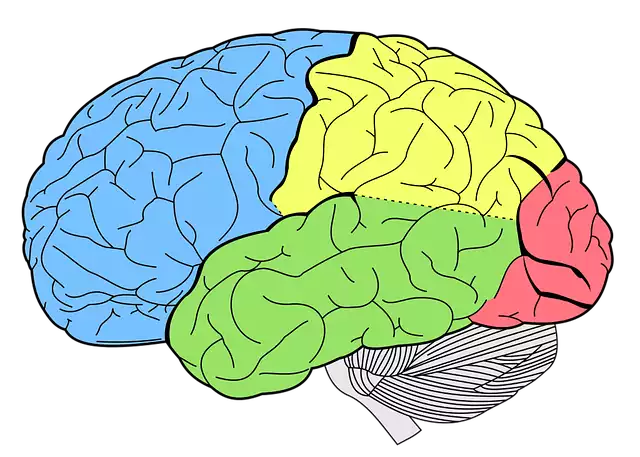Mental health Well Being Importance
It’s important to not forget about your mental health while dealing with the challenges of everyday life.
In a society that places great emphasis on physical health and success, the importance of mental health often gets overlooked.
Mental health is important for your well-being and should be taken seriously.
Your mental health affects all areas of your life, from dealing with stress to keeping good relationships.
In this article, we will discuss why mental health is important and the steps you can take to prioritize and improve your mental well-being.
Understanding the importance of mental health and the available resources can help you live a balanced and fulfilling life.
So, let’s dive into the world of mental health and discover why it’s essential for your overall well-being.
Table of Contents Mental health Well Being Importance
Discover the benefits of CBT.
Cognitive Behavioural Therapy (CBT) can offer significant benefits for your overall well-being.
By understanding how your thoughts, feelings, and behaviors are interconnected, CBT empowers you to make positive changes in your life.
Through CBT, you can develop healthier lifestyle choices that promote mental stability and emotional resilience.
By identifying and challenging negative thought patterns and replacing them with more positive and realistic ones, CBT helps you manage stress, anxiety, and depression more effectively.
Additionally, CBT recognizes the role of exercise in promoting mental health.
Engaging in regular physical activity not only improves your physical well-being but also boosts your mood and reduces symptoms of depression and anxiety.
By incorporating CBT techniques into your daily life and adopting a healthy lifestyle, you can cultivate a greater sense of mental wellness and enhance your overall quality of life.
Make healthy lifestyle choices now.
It is crucial to prioritize and make healthy lifestyle choices now for the sake of your overall well-being.
By incorporating Cognitive Behavioural Therapy (CBT) techniques into your daily routine, you can take proactive steps towards improving your mental stability.
Recognizing the role of exercise in promoting mental health, engaging in regular physical activity is essential.
Exercise not only enhances your physical well-being but also contributes to a positive mood and reduces symptoms of anxiety and depression.
By adopting healthy lifestyle choices, such as maintaining a balanced diet, getting sufficient sleep, managing stress effectively, and nurturing positive relationships, you can create a solid foundation for your mental wellness.
Remember, it is never too late to start making these choices and investing in your mental health.
Your present decisions will shape your future well-being, leading to a happier and more fulfilling life.
Improve your mental stability today.
When it comes to improving your mental stability, Cognitive Behavioural Therapy (CBT) can play a significant role in enhancing your overall wellness.
By engaging in CBT techniques, you can gain a deeper understanding of your thoughts, emotions, and behaviors, and learn effective strategies to challenge negative patterns and develop healthier coping mechanisms.
Additionally, adopting healthy lifestyle choices is crucial for maintaining mental stability.
By prioritizing your well-being through regular exercise, you can boost your mood, reduce stress levels, and improve overall cognitive function.
Remember that making small, consistent changes in your daily routine can have a profound impact on your mental health.
Start incorporating these practices into your life today to experience the benefits of improved mental stability and enjoy a greater sense of well-being.
Exercise for better mental health.
Regular exercise is not only beneficial for your physical health but also plays a vital role in promoting mental health.
Engaging in physical activities like jogging, swimming, or yoga can help to reduce symptoms of anxiety and depression by increasing the production of endorphins, which are known as the “feel-good” hormones.
Moreover, exercise provides a sense of accomplishment, boosts self-esteem, and enhances cognitive function.
By incorporating regular exercise into your daily routine, you can improve your overall well-being and experience a positive impact on your mental health.
So, lace up your sneakers, prioritize your mental wellness, and embrace the transformative power of exercise in promoting a healthier mind and body.
Find balance through self-care.
To achieve overall well-being and maintain optimal mental health, it is crucial to find balance through self-care.
Cognitive Behavioral Therapy (CBT) can be an effective approach for fostering overall wellness.
Through CBT, you can develop coping mechanisms, challenge negative thoughts, and cultivate a more positive mindset.
Additionally, making healthy lifestyle choices, such as nourishing your body with nutritious foods, getting enough sleep, and practicing stress management techniques, can significantly contribute to mental stability.
Remember to prioritize self-care activities that bring you joy and relaxation, whether it’s taking a bubble bath, reading a book, or engaging in a hobby.
By prioritizing self-care and integrating these practices into your daily routine, you can nurture your mental well-being and find the balance you need for a fulfilling life.
Prioritize your mental well-being first.
When it comes to your overall well-being, prioritizing your mental well-being should be at the forefront of your efforts.
Taking care of your mental health is essential for maintaining a healthy and fulfilling life.
One effective approach to achieving this is through Cognitive Behavioral Therapy (CBT), which can help you develop strategies to manage your thoughts, emotions, and behaviors for overall wellness.
Additionally, making healthy lifestyle choices is crucial for promoting mental stability.
Engaging in regular exercise not only benefits your physical health but also plays a significant role in promoting mental health by reducing stress and improving mood.
By prioritizing your mental well-being and incorporating CBT techniques and healthy lifestyle choices into your daily routine, you are taking proactive steps towards achieving optimal mental health and overall well-being.
Practice mindfulness for inner peace.
In addition to Cognitive Behavioral Therapy and healthy lifestyle choices, another valuable practice you can incorporate into your daily routine for achieving inner peace is mindfulness.
Mindfulness involves being fully present in the moment, without judgment or distraction.
By practicing mindfulness, you can cultivate a greater sense of self-awareness and develop a deeper understanding of your thoughts, emotions, and sensations.
This practice can help you manage stress, reduce anxiety, and enhance overall mental well-being.
Taking a few moments each day to engage in mindfulness exercises, such as deep breathing or mindful meditation, can significantly contribute to your inner peace and overall mental stability.
Soothing your mind and focusing on the present moment allows you to break free from negative thought patterns and find a sense of calm amidst life’s challenges.
By embracing the practice of mindfulness, you are nurturing your mental health and fostering a greater sense of inner peace.
Explore the power of positivity.
Embracing the power of positivity is a transformative approach that can greatly impact your mental well-being.
By consciously choosing to focus on positive thoughts and perspectives, you can reshape your mindset and cultivate a more optimistic outlook on life.
The practice of cognitive behavioral therapy for overall wellness emphasizes the importance of challenging negative thoughts and replacing them with positive affirmations.
This shift in thinking can help you overcome self-doubt, reduce stress, and improve your overall emotional resilience.
Furthermore, adopting healthy lifestyle choices, such as maintaining a balanced diet, getting enough sleep, and engaging in regular exercise, plays a crucial role in promoting mental stability.
Exercise, in particular, has been shown to release endorphins, which are natural mood boosters that can alleviate symptoms of anxiety and depression.
By incorporating these practices into your daily routine, you can harness the power of positivity and enhance your overall well-being.
Nurture your mind and soul.
Nurturing your mind and soul is essential for your overall well-being.
Taking care of your mental health goes beyond just managing stress or anxiety; it involves actively engaging in self-care practices that promote inner growth and fulfillment.
One effective approach is cognitive-behavioral therapy (CBT), which focuses on identifying and challenging negative thought patterns, allowing you to develop healthier perspectives and coping mechanisms.
Additionally, making healthy lifestyle choices is crucial for maintaining mental stability.
By prioritizing nutritious meals, regular exercise, and sufficient sleep, you provide your body and mind with the necessary fuel for optimal functioning.
Exercise, in particular, plays a significant role in promoting mental health as it releases endorphins, known as natural mood boosters.
Incorporating activities like yoga, meditation, or even a simple walk in nature can help nourish your soul and provide a sense of calm and tranquility.
Remember, taking the time to nurture your mind and soul not only enhances your well-being but also allows you to show up as the best version of yourself in all aspects of life.
Invest in your mental health.
To truly invest in your mental health, it is important to recognize the value of prioritizing self-care and seeking professional support when needed.
Cognitive-behavioral therapy (CBT) can be a powerful tool in promoting overall wellness.
By working with a trained therapist, you can learn strategies to identify and challenge negative thought patterns, allowing for healthier perspectives and improved emotional well-being.
Additionally, making healthy lifestyle choices is key to maintaining mental stability.
Engaging in regular exercise not only boosts physical fitness but also releases endorphins, enhancing mood and reducing stress.
Moreover, ensuring a balanced diet, adequate sleep, and incorporating relaxation techniques such as mindfulness or deep breathing can further support your mental health journey.
Remember, investing in your mental health is a lifelong commitment that yields invaluable rewards for your overall well-being.
Overall, prioritizing your mental health is essential for your overall well-being.
Taking care of your mental health can help improve your relationships, productivity, and overall quality of life.
Remember to seek help and support when needed and to practice self-care regularly.
Your mental health is just as important as your physical health, so make sure to prioritize it and give it the attention it deserves.
With a little effort and attention, you can achieve a healthy and balanced state of mind.
Keep yourself mentally fit and watch as your overall well-being improves.
FAQ
How does mental health impact our overall well-being and why is it essential to prioritize it?
Your mental health has a profound impact on your overall well-being.
It affects how you think, feel, and behave, influencing every aspect of your life.
Prioritizing mental health is essential because it allows you to maintain emotional stability, cope with stress, and build healthy relationships.
Neglecting it can lead to various issues, such as anxiety, depression, and decreased productivity.
By prioritizing mental health, you can improve your overall quality of life, enhance your ability to handle challenges, and experience greater happiness and fulfillment.
Taking care of your mental health is crucial for your overall well-being and should be a top priority.
What are some common signs and symptoms of poor mental health, and how can we identify them in ourselves and others?
In order to identify signs and symptoms of poor mental health in yourself and others, it’s important to pay attention to various cues.
Some common signs may include excessive worrying, changes in appetite or sleep patterns, withdrawal from social activities, and unexplained physical ailments.
You can recognize these signs in yourself by reflecting on your emotions and behaviors, and considering if they align with your usual state.
When it comes to others, observe any unusual or prolonged changes in their mood, behavior, or communication patterns.
Remember, it’s essential to approach these conversations with empathy and non-judgment, and encourage seeking professional help if needed.
What are some effective strategies and practices for maintaining good mental health on a daily basis?
To maintain good mental health on a daily basis, you should prioritize self-care.
Start by practicing mindfulness and meditation, which can help you stay present and reduce stress.
Engage in regular physical activity, as exercise releases endorphins and boosts your mood.
Establish a consistent sleep routine to ensure adequate rest.
Nourish your body with a balanced diet and stay hydrated.
Set realistic goals and break them down into manageable tasks.
Create a support system of friends and family, and don’t hesitate to ask for help when needed.
Lastly, make time for activities you enjoy and find stress-relieving hobbies.
Remember, taking care of your mental health is crucial.
How does mental health affect our physical health, and what are the potential consequences of neglecting it?
When it comes to mental health, you play a vital role in maintaining your overall well-being.
Neglecting your mental health can have serious consequences for your physical health.
Stress, anxiety, and depression can weaken your immune system, making you more susceptible to illnesses.
Moreover, neglecting mental health can lead to unhealthy coping mechanisms such as overeating, substance abuse, or lack of exercise, which can have detrimental effects on your physical health.
Ignoring your mental health can also impact your relationships, work performance, and overall quality of life.
Taking care of your mental health is crucial for a balanced and healthy life.
What are some common misconceptions or stigmas surrounding mental health, and how can we work towards breaking them down for a more inclusive and supportive society?
You might believe that mental health issues are a sign of weakness or that seeking help is unnecessary.
However, it’s essential to understand that these misconceptions perpetuate stigmas that prevent people from seeking the support they need.
To break them down, educate yourself and others about mental health, challenge negative stereotypes, and promote open conversations.
Encourage empathy, compassion, and understanding towards individuals experiencing mental health challenges.
Advocate for accessible and affordable mental health services, as well as policies that prioritize mental well-being.
By actively working towards an inclusive and supportive society, we can dismantle these misconceptions and provide a safe space for everyone’s mental health.







